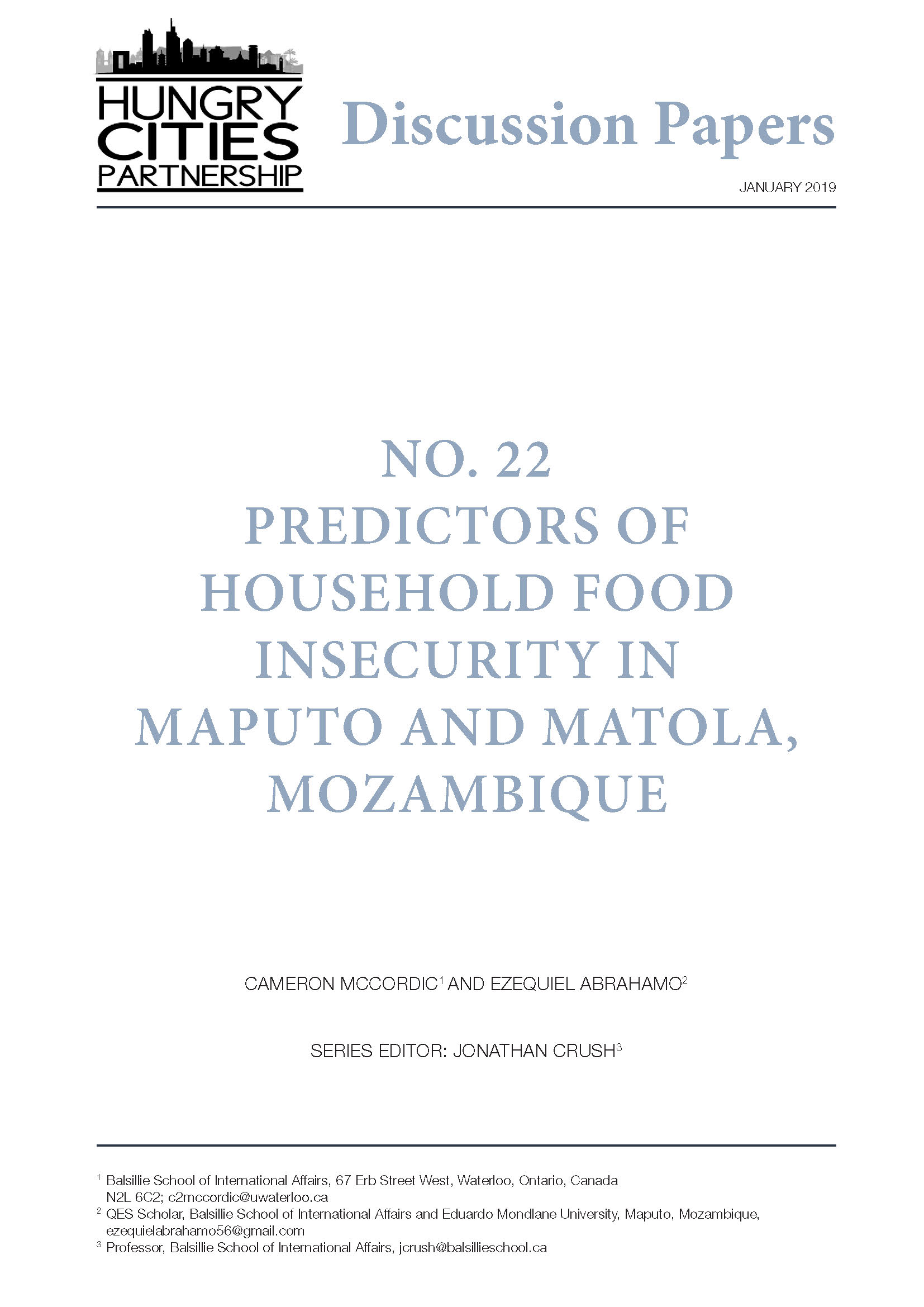The rapid growth of Maputo and Matola (neighbouring cities in Southern Mozambique) has dramatically changed each city’s demographic and food insecurity profile. Previous research in Maputo indicates that household access to infrastructure plays an important role in determining vulnerability to food insecurity. This paper investigates (a) whether this relationship is also true of Matola and (b) whether the demographic composition of households plays a role in defining vulnerability to food insecurity in either city. Using household survey data collected by HCP in 2014 in Maputo and Matola, the paper demonstrates that inconsistent access to water, electricity, medical care, cooking fuel and cash are associated with increased odds of severe household food insecurity in both cities. In addition, nuclear households in the sample have reduced odds of severe food insecurity in both cities (even when taking limited resource access into account). The analysis shows that the surveyed households in both Maputo and Matola share similar predictors of severe household food insecurity and that household structure may influence household vulnerability to food insecurity.

